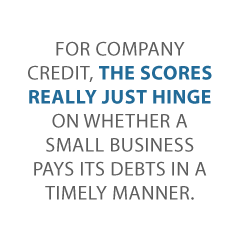Are You Looking for Funding? Then You Need to Read Our Fundera Review
Today, Credit Suite reviews Fundera. Fundera serves as a marketplace connecting small business owners to financing for their business via traditional and alternative lenders. Also, there are several financing options. We look at the specifics and drill down into the details of Fundera. Welcome to our Fundera review.
Fundera: Background
Fundera is located online here: www.fundera.com. So, their physical address is:
123 William Street, 21st Floor
New York NY 10038.
You can call them here: (800) 386-3372. You can email them at: [email protected]. Fundera is financed by Khosla Ventures; SGE Susquehanna Growth Equity, LLC; Core Innovation Capital; First Round; and QED Investors.
SBA Loans through Fundera
Is Fundera an SBA lender? Why, yes, they are.
Most companies getting approval had four or more years in business. Most business owners approved had 680 or better credit scores. And most companies approved had $180,000 in annual revenue. Loan amounts run from $5,000 to 5 million, with 5 to 25 year terms. You can get funding in as little as 2 weeks. However, they may require collateral.
SBA Loan Fees
Their interest rates start at 6%.
Term Loans via Fundera
Most companies approved had three or more years’ time in business. Most business owners approved had a credit score of the high 600s or better. And most companies approved had $300,000 or more in annual revenue. $25,000 to 600,000 can be available. For these loans, the terms are 1 to 5 years. And it can be as little as 2 days to approval.
Note: when they were available, Fundera provided PPP loans. If Congress authorizes more money for the program, then it may be possible to get a Fundera PPP loan.
Term Loan Fees
So, their interest rates range from 7 to 30%. But note that there are possible prepayment penalties.
Equipment Financing through Fundera
Most companies getting approval for this form of financing had been in business for two or more years. Most business owners approved had a credit score of 630 or better. And most companies approved had $130,000 or more in annual revenue. Your loan amount up can be for up to 100% of equipment value. So, the term works out to the expected life of the equipment, and the equipment serves as the collateral. You can get approval in as little as 2 days.
Equipment Financing Fees
Their interest rates range from 8 to 30%. Equipment depreciation may be required; this cuts into tax deductions.
Business Lines of Credit
Most companies getting an approval had been in business for a year or more. Most business owners approved had a credit score of 630 or better. And most companies approved had $180,000 or more in annual revenue. $10,000 to over $1 million in funding can be available, with 6 months to 5 years terms. Approval can be in as little as one day.
Business Line of Credit Fees
Their interest rates range from 7 to 25%. However, they may require collateral. And there are higher rates for lower credit scores.

Invoice Financing through Fundera
Most companies approved had been in business for one year or more. Most business owners approved had a credit score of 600 or better. And most companies approved had $130,000 or more in annual revenue. Also, the maximum advance can be equivalent to 100% of the total amount of invoice. Approval can be in as little as one day.
Invoice Financing Fees
You can get a fast advance of about 85% of the value of invoices. Most of the other 15% can be paid later. Also, the factor fee works out to 3% + %/week outstanding. So these fees are based on the time it takes for a customer to pay off the invoice.
Advantages
Advantages include several flexible options. And some of them can get an approval with rather low minimum FICO scores. Also a result, these particulars makes Fundera an option for entrepreneurs who do not have stellar credit. You can also get some forms of funding with fairly low annual revenues. Companies with comparably low annual revenue could get approvals for startup loans and personal loans for business.
Disadvantages
Disadvantages include your fees for invoice financing are based on how fast your customer pays. As a result, any deadbeat customers will cost you.
Fundera Review: Upshot
If you have fairly low annual revenue and minimum FICO scores, you are still able to get funding. As a result, the Fundera program can be a good choice for newer businesses that haven’t quite gotten up to speed yet. However, because your company will be charged for deadbeat clients, even a startup will need to be certain their customers will pay on time if they are getting invoice financing.
And finally, as with every means of getting funding, whether online or offline, remember to read the fine print and do the math. Go over the details with a fine-toothed comb, and decide whether this option will be good for you and your company.
In addition, be sure to consider alternative financing options that go beyond lending. So these will always include building business credit. So this way, you will be able to best decide how to get the money you need to help your business grow. Today, we want to hear from our audience! Share your voice with us about your experiences with online lenders.

